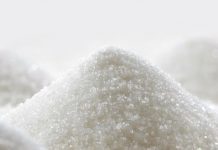Kanpur: Untiring efforts by National Sugar Institute, Kanpur have brought significant change in the environment scenario of sugar mills and molasses based distilleries situated in Ganga basin. Institute taken up the task with Central Pollution Control Board 4 years ago only and encouraging results are now being observed. Shri Narendra Mohan, Director, National Sugar Institute informed that the institute extended technical expertise to Central Pollution Control Board in formulating Charters for controlling pollution in these industries which focussed on “Best Available Technologies”, “Creation of Environmental Cell” and “Online Monitoring System”. The institute also extended help to these industries in implementing the provisions contained in these charters.
Due to these efforts, now the treated effluent from sugar factories is being used for irrigation, the molasses based distilleries are working on “Zero Liquid Discharge” said Shri Mohan. Experts of the institute in their annual inspection of 52 sugar factories in Ganga basin observed that fresh water consumption for processing one ton of sugarcane which was @ 140-180 liter in 2017-18 has come done drastically to 80-100 liter only in 2020-21. The quantity of effluent from these sugar factories has also come down from 180-220 liter/ton of cane in 2017-18 to 120-150 liter/ton of cane in 2020-21. The treated effluent since conforming to Central Pollution Control Board norms of pH, TSS and BOD etc., is being used extensively in horticulture and as irrigation water.
In the Molasses based distilleries, which are considered to grossly polluting, there is sea change in the situation due to the efforts made by National Sugar Institute, Kanpur. This is also revealed from the data obtained during inspection of 29 distilleries in Ganga basis during the period 2017-18 to 2020-21. Fresh water requirement per liter of alcohol was 12-14 liter which has come down to 6-7 liter only in 2020-21. The generation of spent wash (effluent) has also reduced by 35-40% as a result of implementation of recommendations contained in the charter. Now by utilizing the spent wash for bio-composting or as a fuel in boilers, the distilleries have achieved the norms of “Zero Liquid Discharge”. To facilitate solid waste management, the boiler ash is being used for producing potash rich fertilizer, bricks and roof panels, said Shri Mohan, Director, National Sugar Institute, Kanpur.












